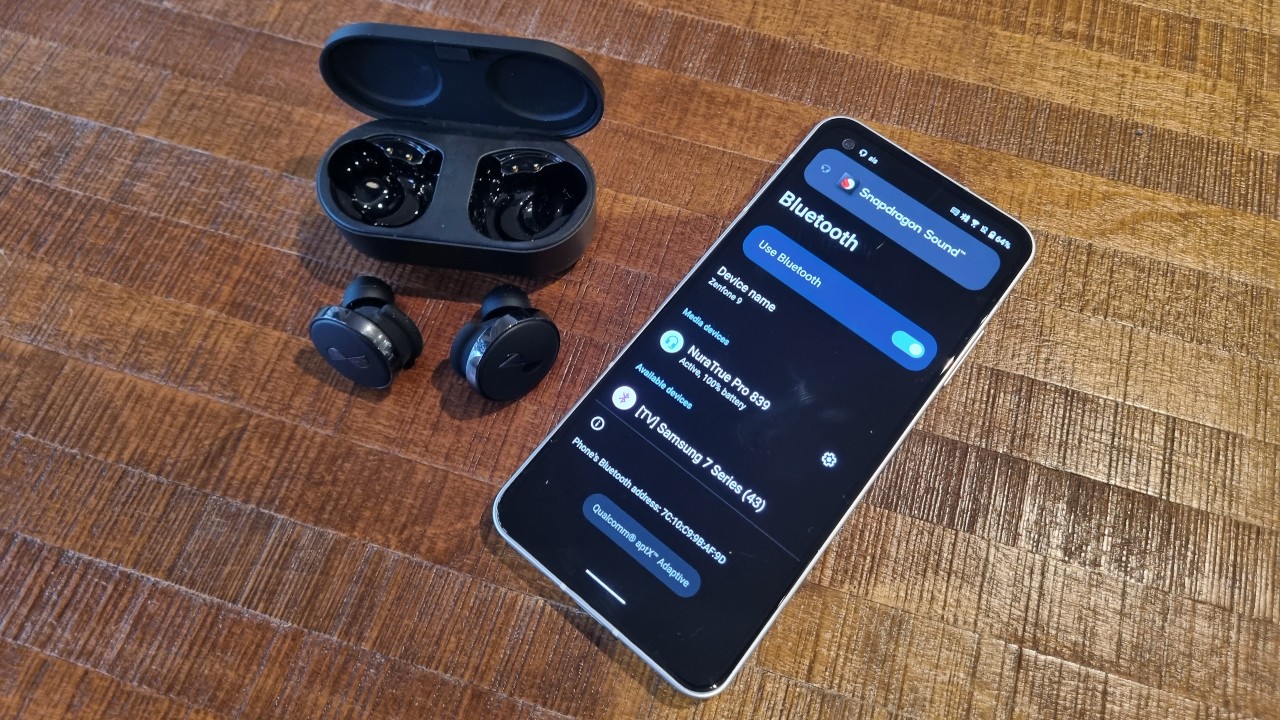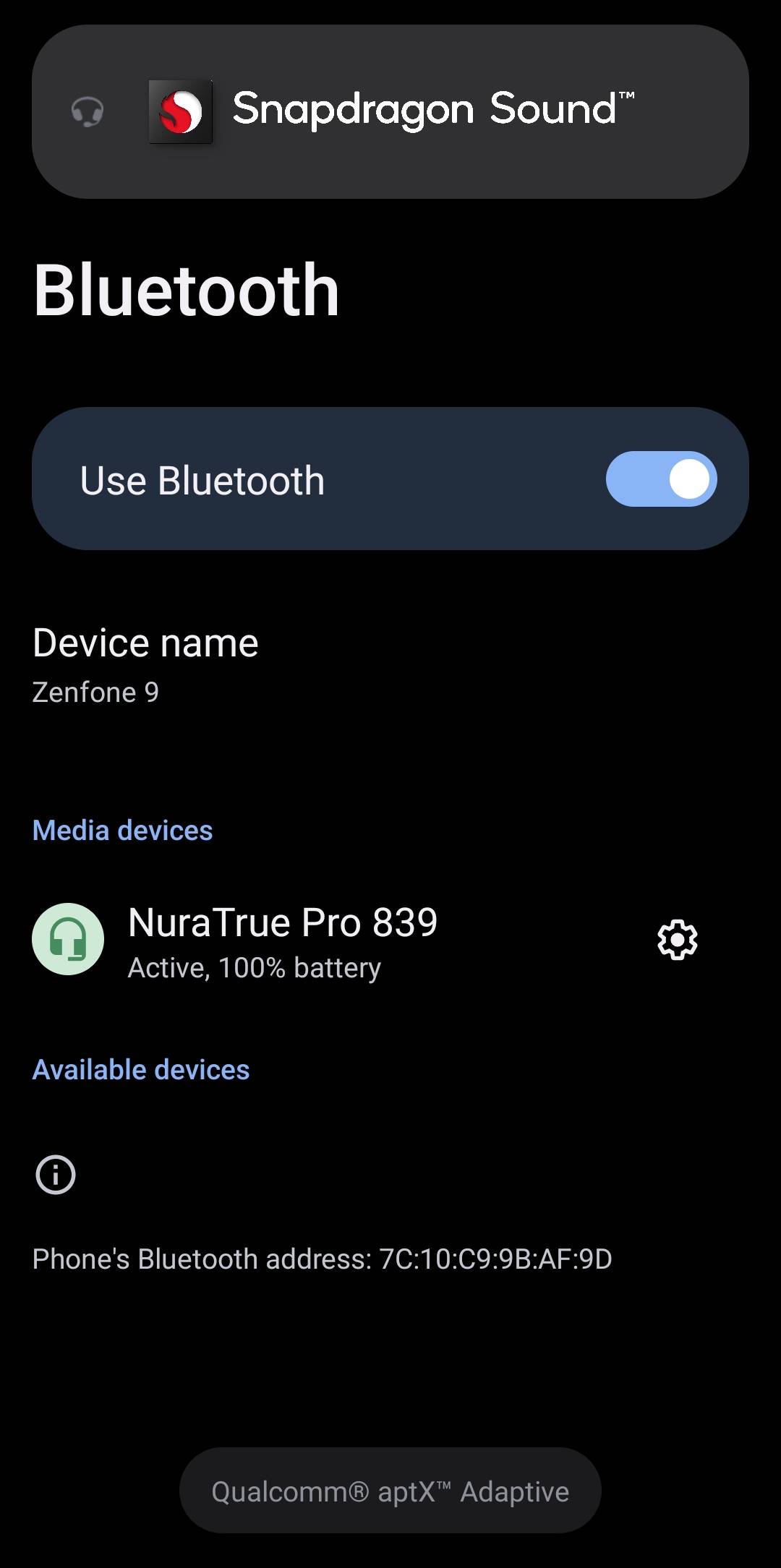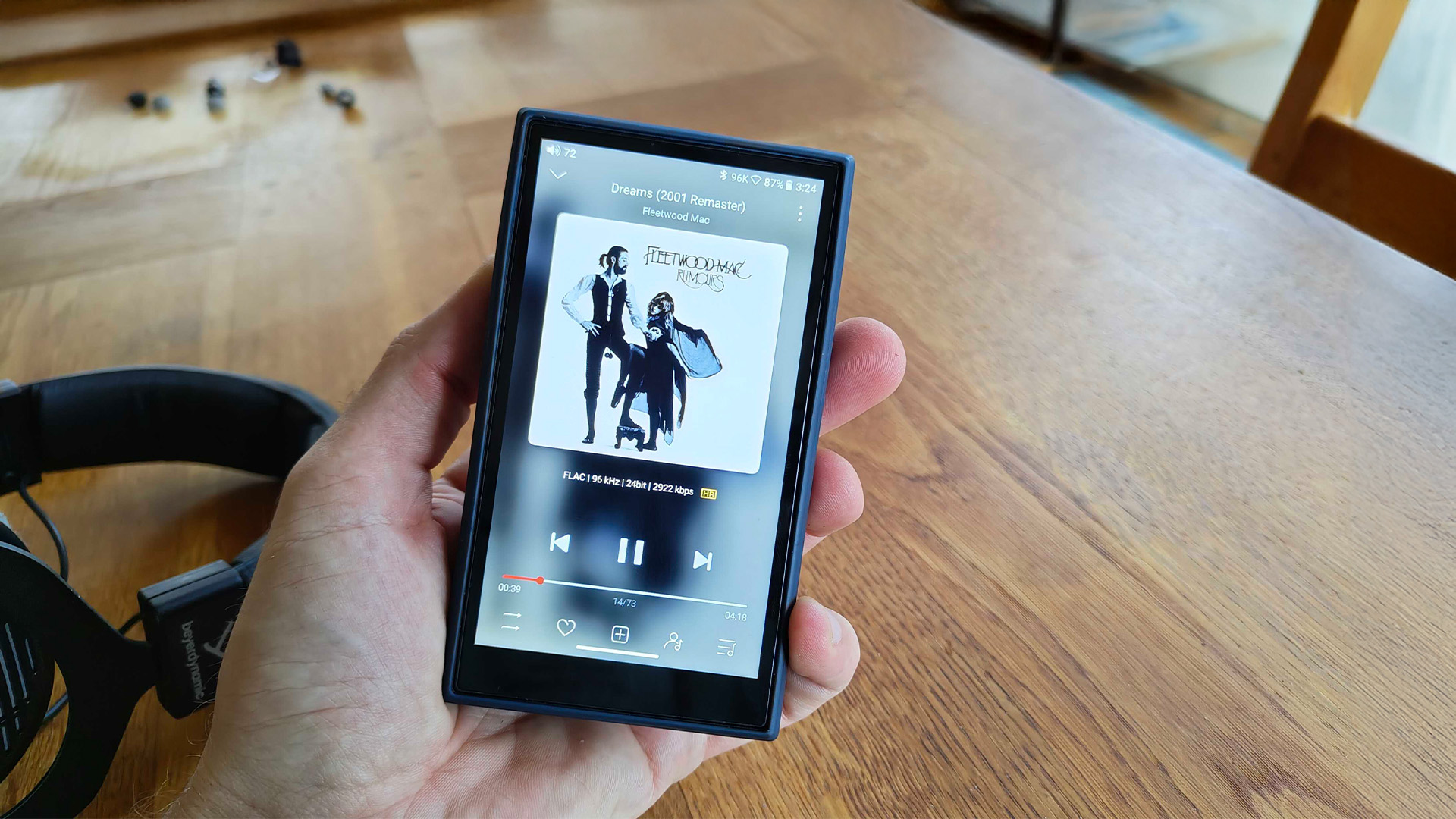I tried aptX Lossless Bluetooth – and yes, we can all look forward to it (with caution)
A step in the right direction for Bluetooth

The latest hi-fi, home cinema and tech news, reviews, buying advice and deals, direct to your inbox.
You are now subscribed
Your newsletter sign-up was successful
It’s quite astonishing really. We have had access to CD-quality digital audio – that is, 16-bit/44.1kHz audio – for decades now, and yet that standard of sound quality has been unattainable through the method in which the masses listen to most of their music: Bluetooth. People – not just audiophiles; people – are streaming higher-quality ‘hi-res’ (that is, audio above 16-bit/44.1kHz) audio over the internet now thanks to its availability on streaming services, and yet transmitting that quality over Bluetooth to, say, wireless headphones is today impossible.
You may well have seen marketing around Bluetooth supporting CD-quality (now widely referred to as ‘lossless’) and even hi-res audio. Qualcomm’s aptX HD and aptX Adaptive codecs ‘support’ audio at 24-bit/48kHz and 96kHz respectively, while Sony’s LDAC codec ‘supports’ audio up to 32-bit/96kHz. But they do so lossily. While they support the transmission of lossless audio, they use various methods of compression in order to process their higher bit rate (the higher the audio file quality, the higher the bit rate) and consequently lose audio data in the process. If the data rate of a CD-quality file is 1411kbp/s, aptX HD is only capable of transferring a maximum of 576kbit/s, while LDAC's upper limit is still short at 990kbp/s.
What you are not listening to over Bluetooth is pure, unadulterated CD-quality music. But you might be fairly soon…
Lossless Bluetooth is here. Ish.
While that might sound all doom and gloom for those of us who do the majority of listening through wireless headphones, the good news is that Qualcomm claims it has found a way to transmit CD-quality/lossless audio over Bluetooth… losslessly. This is through its latest and aptly named Bluetooth codec, aptX Lossless (part of the chipmaker’s latest package of audio technologies called Snapdragon Sound).
Now, there is still compression at play here, but Qualcomm says the new codec can produce “mathematically bit-for-bit exact” transmission so long as – and this is important – the RF conditions are “suitable”. Theoretically, every bit of audio information from the original source will be retained as it travels between an aptX Lossless-supporting device and aptX Lossless-supporting headphones, providing they are in an environment that’s not too busy. None of the music is lost. (And if there is pesky RF noise about, the technology will scale down the bit-rate – and quality – to ensure there aren’t any sound drop-outs.)
aptX Lossless, which was announced just over a year ago, is now finding its way into a trickle of devices, such is the customary rate that these technologies are adopted. And the Nura NuraTrue Pro (the world’s first aptX Lossless-supporting wireless earbuds) and the ASUS Zenfone 9 phone are two of them – the only two we at What Hi-Fi? have got our hands on so far (thank you kindly, Nura). Naturally, it made sense to take the opportunity to get a taste of aptX Lossless ourselves…
So, is aptX Lossless worth it?
Scurrying away to a back room of my house, away from other technology in use, I pair both devices and ‘Snapdragon Sound’ and ‘aptX Adaptive’ flags flash on the phone’s screen which Nura assures me shows that aptX Lossless is in play. (Essentially, aptX Lossless is an optimised version of aptX Adaptive, hence the link, though an aptX Lossless flag would have been more reassuring.)
The latest hi-fi, home cinema and tech news, reviews, buying advice and deals, direct to your inbox.
I play CD-quality tracks from Tidal Hi-Fi through the two devices, and then again when the Nuras are connected to the Google Pixel 5 phone over aptX HD (the codec supported by many portable devices out in the wild and more prevalent than the slightly newer aptX Adaptive) and there are audible differences – discernible but by no means night and day. The presentation is a bit clearer as well as a touch tighter and more precise sounding when the Nuras are connected to the ASUS. There wasn't a whole lot in it, but the Nura/ASUS pairing is the one I'd choose to listen to of the two. Unsurprisingly, compared to using SBC (the vanilla Android codec, with a max 345kbp/s transfer rate) with a Samsung Galaxy S21, both pairings blew it away.
There are variables at play here – is aptX Lossless scaling down without my knowing? Is the source device discrepancy making a difference? – that make this experiment very hard to draw finite conclusions on the technology from. And, of course, this is a demo of only one compatible pairing.

aptX Lossless certainly seems to be the best way to listen to the NuraTrue Pro (which are also well spec’d and have a big USP in sound personalisation, by the way), though we’d fancy bigger differences between the codecs would be heard in more advanced, higher-end hardware. (Time will tell.) And this is where the headline’s ‘(with caution)’ comes in.
No matter how good Bluetooth transmission gets and how vast adoption for the technology becomes, how good music is going to sound once transmitted is dependent on the calibre of the hardware. After all, there’s no point being able to transmit every last bit of a music signal if the headphones playing it aren’t themselves transparent enough to communicate it. It’d be like playing a 4K Blu-ray disc through an HD TV, or eating a Michelin star meal when you’ve got a cold.
Just because you’re playing music between two devices over aptX Lossless doesn’t necessarily mean they’ll sound better than two devices playing music over a technically ‘lesser’ codec. The opportunity for aptX Lossless is probably going to be best exploited by (well engineered) higher-end kit, then.
Would I like Sony’s class-leading WF-1000XM4 true wireless earbuds and XM5 wireless over-ears to support aptX Lossless if a load of phones/music players also did? Sure, but only if it sounds superior to the Sony LDAC codec they already support. As with most digital music replay, ultimately it’s not always in the numbers but in the listening.
Is aptX Lossless the holy grail of Bluetooth?
Technically, it is. Today, no other codec – not LDAC, not aptX Adaptive – can claim to transmit bit-perfect CD-quality audio when it’s working optimally. Yet. The exclusivity of aptX Lossless’s feat could indeed be short-lived. Surely, going by its AirPods Max headphones ambition and adoption of hi-res on Apple Music, Apple has to be close to coming up with its own lossless Bluetooth technology superior to its current AAC. If – or, fingers crossed, when – that happens, the industry will invariably be spurred on to get onboard a lossless solution too.
As well as continuing to become more and more power efficient (a priority Bluetooth standards have seemingly prioritised of late), Bluetooth supporting truly lossless audio is a step along the progress path we need if we are to continue to consume and champion the increasing accessibility of CD-quality and hi-res audio streaming. Unless someone finds a practical way to portabalise wi-fi in headphones, perhaps.
MORE:
Lossless is coming to Spotify! All you need to know about Spotify HiFi
The best wireless Bluetooth headphones you can buy in 2022
Bluetooth 5.0-5.3: everything you need to know about the latest standards
Hi-res music streaming services compared: which should you sign up for?

Becky is a hi-fi, AV and technology journalist, formerly the Managing Editor at What Hi-Fi? and Editor of Australian Hi-Fi and Audio Esoterica magazines. With over twelve years of journalism experience in the hi-fi industry, she has reviewed all manner of audio gear, from budget amplifiers to high-end speakers, and particularly specialises in headphones and head-fi devices.
In her spare time, Becky can often be found running, watching Liverpool FC and horror movies, and hunting for gluten-free cake.
